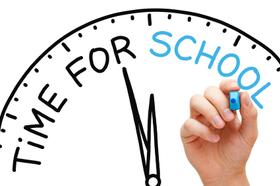Public schools have taught the Advanced Placement curriculum for decades. AP courses offer students the opportunity to accelerate in the subjects in which they are particularly gifted. In addition, students who score well on AP exams can obtain college credits or test out of courses before ever attending a university. However, some schools are taking the advanced placement program one step further, requiring students to take exams that will bolster the school's own standing in some national rankings.
Those Opposed to AP Requirements
The AP examinations offer many benefits to students, but they cost a lot to take. Most of the exams cost between $50 and $100. Some schools pick up the tab, and others charge students directly for the exams.
One of the complaints parents and students alike have in districts that are requiring the exam is that some families cannot afford the expense of the test. This means some students will not benefit from the Advanced Placement classroom because they can't afford the required exam with the course itself.
Others are unhappy about the requirement to take an exam that may or may not offer much benefit to them. For students taking Advanced Placement courses, the time required to prepare for many examinations may be more than the students can handle. Most will pick and choose the exams to take based on their expectations of which exams they predict they will master.
The percentage of students enrolled in advanced placement courses who take the AP exams may range anywhere from one-third to more than 90% of any given AP class, depending on the school district.
In this video, the prestigious Princeton Review offers an overview of the APP courses.
On a Positive Note
Schools that have decided to make AP exams a required part of the coursework argue that the examinations are the best litmus test to determine whether their AP courses are up to the national standard. Without testing, schools are hard-pressed to determine just how effective their AP courses are for students.
Terry Grier, the superintendent of Houston Public Schools, is considering making the examinations mandatory in his school district for just this reason. He told the Houston Chronicle, "The AP exam is, I believe, a necessary and integral part of having a rigorous AP program. It lets you know if the curriculum being taught in these AP courses is rigorous."
The other plus for schools that require students to take AP exams is that their national rankings rise based on the number of exams taken each year. One roster in particular, found in Newsweek, ranks public schools across the country based strictly on the number of AP and IB exams that are taken each year, according to a report in the Dallas Morning News. The schools that make the coveted top slots receive their notoriety in the publication – no small distinction for schools fighting for budget dollars and improved student achievement each year.
This video tells how one student successfully self-studied for the AP exams.
Rewarding Performance
Some Texas schools are even taking extra steps to ensure positive student performance on AP exams. According to WFAA.com, the Dallas ISD is offering monetary rewards to students who score a three or higher on their exams. The additional funds are courtesy of the Texas Instruments Foundation, which offered the school district $1.5 million to support the reward program in all 32 high schools for the next three years.
Students who do well on their exams will receive $100 for each positive score to spend as they like. Thus far, nearly 10,000 students have benefited from the program, sometimes earning up to $400.
Israel Ruiz, a former AP student, told WFAA, "Once you have the extra cash, that cash can be used on future books. That's the biggest thing. Books are pretty expensive in college. Having $200 to put towards your first semester of books would be fantastic." Other recipients plan to spend their money in various ways since no requirements are placed on where it must go.
According to GreatSchools.org, the current advanced placement program offers 37 courses and exams over 22 subject areas. While many high schools offer a variety of courses within the AP network, students can also take exams without enrolling in the corresponding course. The exams cost $86 each, with reduced fees for students who show a financial need. Each college sets its own criteria on college credit and advancement to upper-level courses based on a student's performance on the AP exams.
Questions? Contact us on Facebook. @publicschoolreview
#publicschools #APcourses















